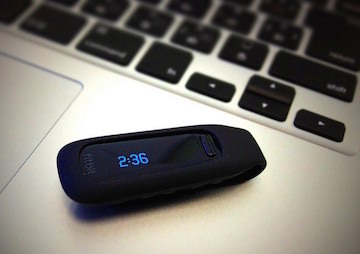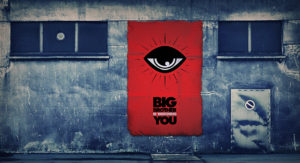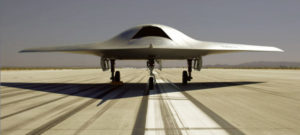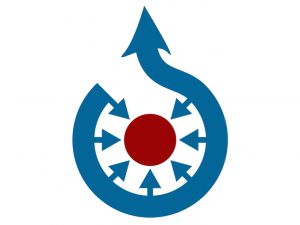Fitbits for Bosses: The Future of Workplace Surveillance
If the thought of hidden cameras in the office and employee activity-monitoring software weren't dystopian enough, digital Big Brother is now expanding into the world of workplace biosurveillance. Tatsuo Yamashita / CC BY 2.0
Tatsuo Yamashita / CC BY 2.0
If the thought of hidden cameras in the office and employee activity-monitoring software weren’t dystopian enough, digital Big Brother is now expanding into the world of workplace biosurveillance.
As a recent article in The Guardian explained, the workplace of the near future looks increasingly Orwellian, with the use of devices that monitor employee’s sleep, driving, face-to-face interactions, and even happiness.
Al-Jazeera reports:
Imagine you’ve just arrived at your job with the Anywhere Bank call center. You switch on your computer and adjust the height of your chair. Then, you slide on the headset, positioning the mic in front of your lips. All that’s left to do is to activate your behavior-monitoring device — the gadget hanging from your neck that tracks your tone of voice, your heart rate and your physical movements throughout the day, sending real-time reports to your supervisor.
It’s obvious that wearable tracking technology has gone mainstream: Just look at the explosion of smart watches and activity monitors that allow people to count steps and check their calorie intake. But this technology has simultaneously been creeping into workplace: The military uses sensors that scan for injuries, monitor heart rate and check hydration. More and more, professional athletes are strapping on devices that track every conceivable dimension of performance. Smart ice skates that measure a skater’s jump. Clothes measure an athlete’s breathing and collect muscle data. At this year’s tryouts in Indianapolis, some NFL hopefuls wore the “Adidas miCoach,” a device that sends data on speed and acceleration straight to trainers’ iPads. Over the objection of many athletes, coaches and team owners are keen to track off-the-field activity, too, such as sleep patterns and diet. With million-dollar players at stake, big money seems poised to trump privacy.
Now employers from industries that don’t even require much physical labor are getting in on the game.
Finance is adopting sophisticated analytics to ensure business performance from high-dollar employees. Cambridge neuroscientist and former Goldman Sachs trader John Coates works with companies to figure out how monitoring biological signals can lead to trading success; his research focuses on measuring hormones that increase confidence and other desirable states as well as those that produce negative, stressful states. In a report for Bloomberg, Coates explained that he is working with “three or four hedge funds” to apply an “early-warning system” that would alert supervisors when traders are getting into the hormonal danger zone. He calls this process “human optimization.”
People who do the most basic, underpaid work in our society are increasingly subject to physical monitoring, too — and it extends far beyond the ubiquitous urine test. Bank of America has started using smart badges that monitor the voice and behavior patterns of call-center workers, partnering with the creepily named Humanyze, a company specializing in “people analytics.” Humanyze is the brainchild of the MIT Media Lab, the fancy research institute at the Massachusetts Institute of Technology dedicated to the “betterment of humanity,” which, incidentally, receives a quarter of its funding from taxpayers. Humanyze concocted a computer dashboard complete with graphs and pie charts that can display the location of employees (Were you hanging out in the lounge today?) and their “social context” (Do you spend a lot of time alone?).
Humanyze founder Ben Waber points out that companies already spend enormous resources collecting analytics on their customers. Why not their employees?
A growing number of workers are being monitored by GPS, often installed on their smartphones. In the U.S. the Supreme Court ruled that law enforcement officials need awarrant in use GPS devices to track a suspect. But employers don’t worry over such formalities in keeping tabs on employees, especially those who are mobile, such as truck drivers. A Washington Post report on GPS surveillance noted a 2012 study by the research firm Aberdeen Group, which showed that 62 percent of “field employees” —those who regularly perform duties away from the office — are tracked this way. In May, a California woman filed a lawsuit against her former employer, Intermex Wire Transfer, for forcing her to install a tracking app on her phone, which she was required to keep on 24/7. She described feeling like a prisoner wearing an ankle bracelet. After removing the app, the woman was fired.
Sensitive to Big Brother accusations, the biosurveillance industry is trying to keep testing and tool evaluations under the radar. Proponents of the technology point to its potential to improve health conditions in the workplace and enhance public safety. Wouldn’t it be better, they argue, if nuclear power plant operators, airline pilots and oil rig operatives had their physical state closely monitored on the job?
Young Americans nurtured in a digital world where their behavior is relentlessly collected and monitored by advertisers may shrug at an employer’s demands for a biosurveillance badge. In a world of insecure employment, what choice do they have, anyway? Despite the revelations of alarming National Security Agency spying and increased government and corporate surveillance since 9/11, the young haven’t had much experience yet with what’s at stake for them personally. What could possibly go wrong?
A lot: Surveillance has a way of dehumanizing workers. It prevents us from experimenting and exercising our creativity on the job because it tends to uphold the status quo and hold back change. Surveillance makes everyone seem suspicious, creating perceptions and expectations of dishonesty. It makes us feel manipulated. Some researchers have found that increased monitoring actually decreases productivity.
Read more here, if you dare.
–Posted by Roisin Davis
Your support matters…Independent journalism is under threat and overshadowed by heavily funded mainstream media.
You can help level the playing field. Become a member.
Your tax-deductible contribution keeps us digging beneath the headlines to give you thought-provoking, investigative reporting and analysis that unearths what's really happening- without compromise.
Give today to support our courageous, independent journalists.






You need to be a supporter to comment.
There are currently no responses to this article.
Be the first to respond.